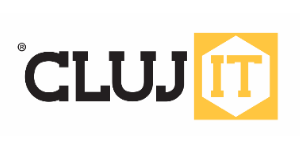Private Sector Pilot Case
Holistic skills analysis and management in the private sector
CHALLENGES
CLUJ currently faces difficulties in defining skills heavily dependent on emerging digital technologies and digital transformation principles and setting out the proper requirements and job descriptions, in combination with the formulation of proper policies to ensure upskilling. In addition, problems have been reported in personnel hiring and candidate evaluation, skills training, and individual performance evaluation of the existing workforce, which has a large impact on organizational layers and company structures. Additional challenges are observed in organizing related workshops for further training on necessary skillsets, mapping competencies and proper tools and eliminating skill gaps and shortages among employees.
IMPACT
With SKILLAB, CLUJ can introduce efficient mapping in optimal technologies and specialties for new projects that require high levels of digital specialization and effectively define the requirements for certain digital jobs. In addition, recruitment times and selection will be significantly improved, with accurate assessment of candidate competencies with proper skills matching and effective addressing of the skills shortage problem.
Furthermore, the company will be able to target training on specific competencies and expertise, organize innovative training programs and develop an organizational culture based on skills development and sharing, ensuring that their digital policies promote upskilling and workforce development. Finally, the proper training of the workforce will be a prime example of a human-centric approach to HRM, with the support of Machine Learning and Competence Management, with mechanisms that retain and motivate employees and with internal initiatives that increase the capacity of the staff in accordance with the mandates of digitalization and relevant policies along with SSH concepts.
IMPLEMENTATION
The SKLLAB Platform will be tested by two companies following the same evaluation framework. This shared approach is important because it ensures that both companies evaluate the platform in a consistent way. By doing this, they can get a clear and detailed understanding of how the platform works and where it might need improvements. Working together in this way allows them to combine their strengths and expertise. They can identify what the platform does well and where it might fall short, making the feedback more reliable and useful. This collaboration also means that the insights they gather will be more valuable, helping to refine the platform so that it better meets the needs of both companies. In a later stage of the project, two other SMEs will join the piloting process. They will be involved more in offering feedback regarding the usability.
OBJECTIVES
Improve the recruitment process: The pilot will assess whether the platform helps in identifying and attracting the right talent more efficiently.
Enhance employee skills and optimize training programs: The pilot will evaluate how well the platform identifies skill gaps and suggests targeted training programs.
Obtain relevant feedback related to the recruitment process improvement using the SKILLAB platform.
Identify hiring needs, trending skills within the industry.
Perform competition analysis to help the companies refine their own approaches to remain competitive in the market.
LEADING PARTNER

